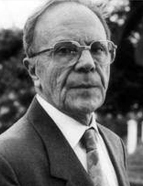

However, in the 1940s, the influence of António Sérgio, Vieira de Almeida, Sílvio Lima and of French historiography, which was making significant progress in the renewal of historiographical thinking, contributed to a relative understanding of the issue by the academy. Magalhães Godinho was particularly noteworthy in this process as this problem was addressed in his graduation dissertation and he continued to publish work related to historical theory and criticism in the 1940s.
Joel Serrão was part of this renewal process and his historiographical trajectory was guided by a specific interest in reflection on history: «As for history, it should be noted, without mincing words, that it serves the present and the future – and not the past! If we study the past, it is only because our own time demands that we do so. It is because we need to understand it – to position our action within it. » (Temas de cultura portuguesa [Themes of Portuguese culture], pp. 17-18). This was the keystone of his coherent and virtually unchangeable historical thinking.
The influence of António Sérgio's anti-specterism is clearly identifiable, characterised by the idea of being free from the past to freely embrace present problems and shape a desirable future. However, Joel Serrão was fully aware that we cannot free ourselves entirely from the past: «it is becoming more and more clear that all efforts to set aside a people’s traditions are useless. Nothing can be built on a vacuum. If we search for a solution to national problems, they must first be faced as objectively as possible for if we dismiss them, we may mastermind solutions that are absolutely worthless […]. We must continue the past, albeit dialectically, on the basis of the present and the future, which will be shaped by our efforts in the amorphous darkness» (Temas de cultura portuguesa, 34-35). Having acknowledged the value of tradition in the present, scientific criteria must be used as objectively as possible to understand it. This search for objectivity was always present in his research: «the dignity of history is simply the search for objectivity» (Temas oitocentistas, [19th century themes] 13). It is with this premise in mind that his “criticism” of António Sérgio must be understood, even though Sérgio never sought to be a historian and frequently acted on the basis of controversial and civic intuition. His «evaluative history» frequently bore a criticism of past events instead of an attempt to understand them objectively (Homenagem a António Sérgio [Tribute to António Sérgio], Colectânea I [Compilation I], 1976, 48).
